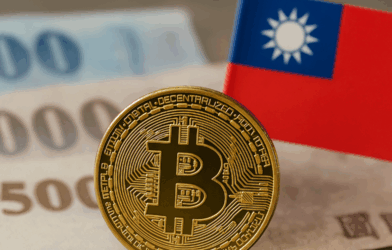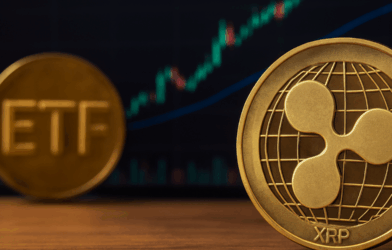When tech founders talk about decentralization, it often sounds philosophical. But when one of them openly says his personal fortune depends on Bitcoin, it hits differently. Pavel Durov — the reclusive founder of Telegram — recently revealed that his luxurious lifestyle, from private jet travel to property rentals, is not financed by his company but by the Bitcoin he bought over a decade ago.
In an interview that quickly went viral across the crypto community, Durov explained that he began accumulating Bitcoin in 2013 when prices hovered around $700. Unlike many early investors who cashed out during bull runs, he claimed to have held his position through multiple crashes, including when Bitcoin fell below $200. The reason, he said, was simple — conviction in freedom. According to him, Bitcoin remains the only financial system that no government can confiscate or censor.
“I’m not going to sell it,” he said. “Bitcoin represents the freedom that governments can’t touch.”
He also revealed that despite Telegram’s global success, it is not his personal cash cow. In his words, “Telegram is a money-losing operation for me personally. Bitcoin is what allowed me to stay afloat.”
Bitcoin as a Hedge — and a Statement
Durov’s statement is more than a financial anecdote; it’s a philosophical stance. He positioned Bitcoin as a defense against the excesses of state control, inflation, and arbitrary censorship. He argued that fiat currencies are in a cycle of continuous devaluation, while Bitcoin’s supply cap and predictable issuance make it the purest form of financial independence.
He even went so far as to suggest that Bitcoin could eventually reach $1 million per coin — a projection rooted in the belief that governments’ “endless money printing” will push more people toward decentralized assets. Though not a new claim in the crypto space, hearing it from a globally known tech founder gives it renewed energy.
Durov’s message resonated deeply within crypto circles because it bridged ideology with action. He wasn’t merely endorsing Bitcoin — he claimed to have built his life around it. For a figure who created a messaging platform used by nearly a billion people, that admission underscored how deeply crypto ideals can blend with real-world conviction.
TON, Telegram, and the Web3 Vision
Durov also touched on his long-standing interest in blockchain technology through the Telegram Open Network, now known as TON. He believes Bitcoin and Ethereum, while powerful, aren’t scalable enough to handle Telegram’s massive user base. TON, he argued, was designed to solve that problem with faster transactions and sharding-based scalability.
Regulatory interference, however, derailed those plans. After legal challenges in the United States halted TON’s initial rollout, the project evolved independently and has since grown into one of the most active blockchains by daily NFT volume. Durov acknowledged that TON has matured far beyond its original blueprint, serving as a decentralized layer that complements Telegram’s ecosystem.
His comments reignited interest in TON Coin, which many see as a natural extension of Telegram’s infrastructure. Developers are once again exploring use-cases such as on-chain identity, mini-apps, and payment channels integrated directly with the messaging platform — all of which could make TON one of the few Web3 networks with genuine mass-market distribution.
The Legal Cloud Hanging Over Durov
Durov’s revelation comes amid ongoing legal scrutiny. In mid-2024, French authorities placed him under judicial supervision following allegations that Telegram was being used for illicit activities — from drug trafficking to child exploitation. Although Durov has not been convicted, he faces continuing investigation and restrictions on his movement.
He maintains that Telegram should not be blamed for the misuse of its technology, emphasizing that privacy and encryption are non-negotiable principles. In earlier interviews, he mentioned that European authorities had even requested the removal of certain political channels, which he refused, citing the platform’s commitment to free expression.
These legal pressures have only deepened Durov’s portrayal as a digital-age libertarian — someone willing to defy governments and defend decentralized systems, even when it means personal risk. For crypto advocates, his Bitcoin story now fits squarely into that narrative: a billionaire founder who practices what he preaches.
Market Reactions and Investor Sentiment
The crypto market reacted quickly to Durov’s remarks. Bitcoin’s price remained largely stable, but social media sentiment spiked sharply. Traders and analysts highlighted how his testimony reinforces Bitcoin’s image as the asset of choice for those seeking financial sovereignty.
While a $1 million target might sound hyperbolic, it aligns with a broader wave of renewed optimism around Bitcoin’s scarcity model, institutional adoption, and upcoming halving cycles. For many, Durov’s statement serves as both a reminder and a rallying cry that Bitcoin isn’t just a speculative tool — it’s a philosophical stance against centralized control.
Skeptics, however, pointed out that even long-term holders face volatility risk. If Bitcoin were to lose 50 percent of its value in a downturn, the impact on personal wealth would be significant — even for a billionaire. Others noted that public declarations of bullishness from high-profile figures can blur the line between genuine belief and narrative marketing.
Broader Ecosystem Effects
Beyond Bitcoin, Durov’s renewed focus on TON is likely to shape investor attention in the coming months. TON’s integration with Telegram could make it the first major blockchain with direct access to hundreds of millions of users — a scale no other Web3 project has yet achieved.
Developers view this as a potential turning point: if Telegram successfully embeds blockchain-based payments and mini-apps, it could normalize Web3 usage for mainstream audiences. That could, in turn, funnel liquidity toward TON-based assets and strengthen the broader decentralized-app economy.
Meanwhile, for Bitcoin, endorsements like Durov’s add another layer of validation. Institutional investors, who value conviction from credible entrepreneurs, often view such stories as confidence signals. Retail holders see it as proof that early adopters who truly “hodled” through volatility were rewarded for their faith.
What Lies Ahead
In the short term, Durov’s statements may serve as a catalyst for renewed debate about Bitcoin’s role as both a financial asset and an ideological symbol. His remarks won’t move markets on their own, but they add depth to a growing cultural narrative — that the world’s digital elites are increasingly choosing crypto as a foundation for their independence.
Over the medium term, attention will likely shift to how Telegram handles TON’s continued growth and whether regulators ease their scrutiny. If TON evolves into a fully decentralized layer powering payments, digital identities, and tokenized communities within Telegram, it could mark a new chapter for Web3 adoption.
And as for Bitcoin, Durov’s conviction reinforces what many long-term believers already feel — that it isn’t just an investment; it’s a declaration of autonomy.











